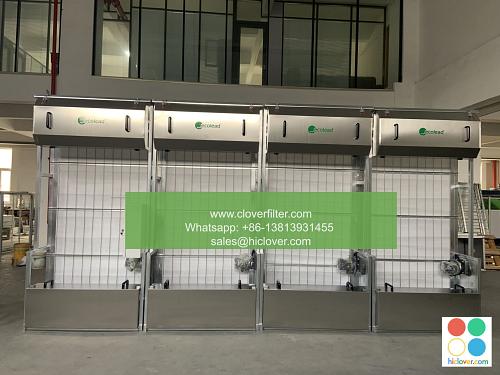Regulatory Compliance for Air Filter Manufacturers

The air filter manufacturing industry plays a critical role in maintaining clean air and safe environments for various applications, including industrial filtration, commercial HVAC systems, and residential air purification. To ensure the quality and performance of air filters, regulatory compliance is crucial. In this article, we will explore the key regulations and standards that air filter manufacturers must adhere to, highlighting various application areas and emphasizing the importance of clean air technologies.
Overview of Regulatory Framework
Air filter manufacturers must comply with a range of regulations, including those related to indoor air quality (IAQ), energy efficiency, and environmental protection. In the United States, for example, the Environmental Protection Agency (EPA) sets standards for air quality, while the American Society of Heating, Refrigerating, and Air-Conditioning Engineers (ASHRAE) develops guidelines for ventilation and filtration systems. In Europe, the European Union (EU) has implemented the Energy-Related Products (ErP) Directive, which sets energy efficiency standards for air filters and other HVAC equipment.
Application Areas and Regulatory Requirements
Air filter manufacturers must consider various application areas, including:
* Industrial filtration: Air filters used in industrial settings, such as manufacturing facilities and oil and gas processing, must meet stringent regulations related to particle capture efficiency and gas-phase filtration.
* Commercial HVAC systems: Air filters used in commercial buildings, such as office buildings and hospitals, must comply with regulations related to indoor air quality and energy efficiency.
* Residential air purification: Air filters used in residential settings, such as home air purifiers and whole-house filtration systems, must meet regulations related to particle removal efficiency and noise reduction.
Key Regulations and Standards
Some key regulations and standards that air filter manufacturers must comply with include:
* ASHRAE Standard 52.2: This standard sets guidelines for air filter testing and rating, including particle capture efficiency and pressure drop.
* EPA Energy Star Program: This program sets energy efficiency standards for air filters and other HVAC equipment, promoting energy-efficient technologies and reducing energy consumption.
* ISO 16890: This international standard sets guidelines for air filter testing and classification, including particle capture efficiency and filter life.
Conclusion
In conclusion, regulatory compliance is essential for air filter manufacturers to ensure clean air and safe environments for various applications. By understanding the key regulations and standards, manufacturers can develop high-quality air filters that meet the needs of industrial filtration, commercial HVAC systems, and residential air purification. As the demand for clean air technologies continues to grow, air filter manufacturers must stay up-to-date with the latest regulations and standards to remain competitive and ensure a safer, healthier environment for everyone. It seems like you forgot to include the prompt. Please go ahead and provide one, and I’ll be happy to help!

